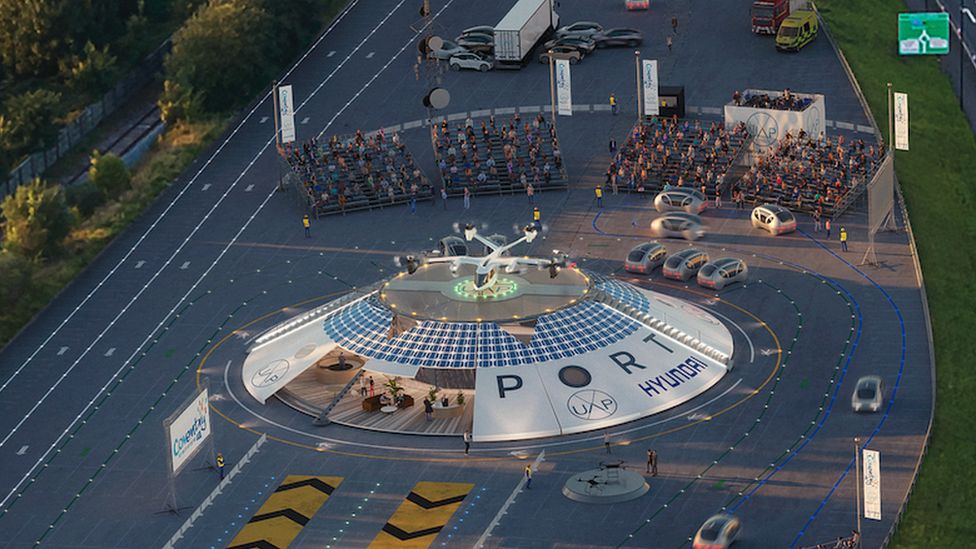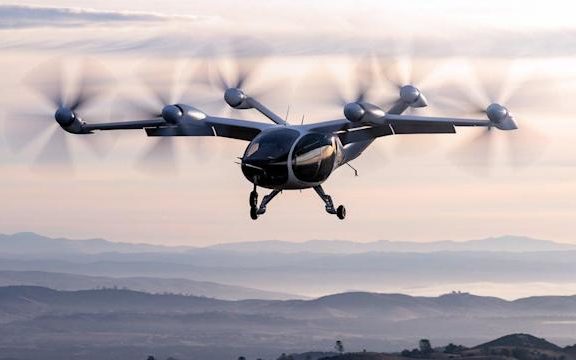For many people of a certain age, the idea of a flying taxi, ferrying people around cities, brings to mind the once popular animated TV series The Jetsons.
The 1960s show depicted a family living in a futuristic metropolis where commuters headed to work in cars that soared through the air.
Written content from BBC

Two decades into the 21st Century, and the science fiction dreams of the creators of The Jetsons are closer than ever to becoming a reality.
With the likes of Uber and Boeing developing eVTOL (electric vertical take-off and landing) flying taxis, one report predicts that by 2040 there will be 430,000 such vehicles in operation around the world.
This comes as delivery drones are also being increasingly developed and tested, with the global market for these tipped to be worth $5.6bn (£4bn) by 2028, according to one estimate.
To handle the demands of a future, in which drones and flying taxis (think large, multi-propeller drones) share airspace over busy conurbations, proponents of the technologies say cities will need to build lots of mini-airports, dubbed “skyports”.
These mini airports will be needed so that the taxis can land in the spots where people want to go.
California-based firm, Joby Aviation, is at the forefront of developing flying taxis, having now carried out more than 1,000 test flights of its eVTOL craft.
It hopes to get approval from US regulator, the Federal Aviation Administration (FAA), to begin commercial operations in 2024.
Joby’s piloted vehicle can carry four passengers, travel at up to 200 mph (322 km/ph), and has a range of more than 150 miles (241km).
“We envisage offering our aerial ride-sharing service from locations near to where people live, work and want to go,” says Oliver Walker-Jones, a spokesperson for Joby.
“We are working closely with cities to ensure our service connects to other modes of transit, co-locating skyports with train stations, airports and other hubs.”
Joby has already partnered with US parking firm Reef Techology with the aim of turning the roofs of some of its carparks into skyports. And it has signed a similar deal with property business Related Companies, New York’s largest landlord.
“With these partners, we aim to build out skyports in initial launch markets that offer attractive savings on routes with high existing demand and frustrating levels of congestion on the ground,” adds Mr Walker-Jones.
While a network of skyports may seem far-fetched, the concept is already receiving considerable positive attention from a number of US city administrations.
Houston, Los Angeles, and Orlando have already announced plans to establish infrastructure for flying taxis and other similar vehicles.
Los Angeles mayor Eric Garcetti says the proposals for his city will “provide a template for how other local governments can take this new technology to even greater heights”. Read more from BBC





